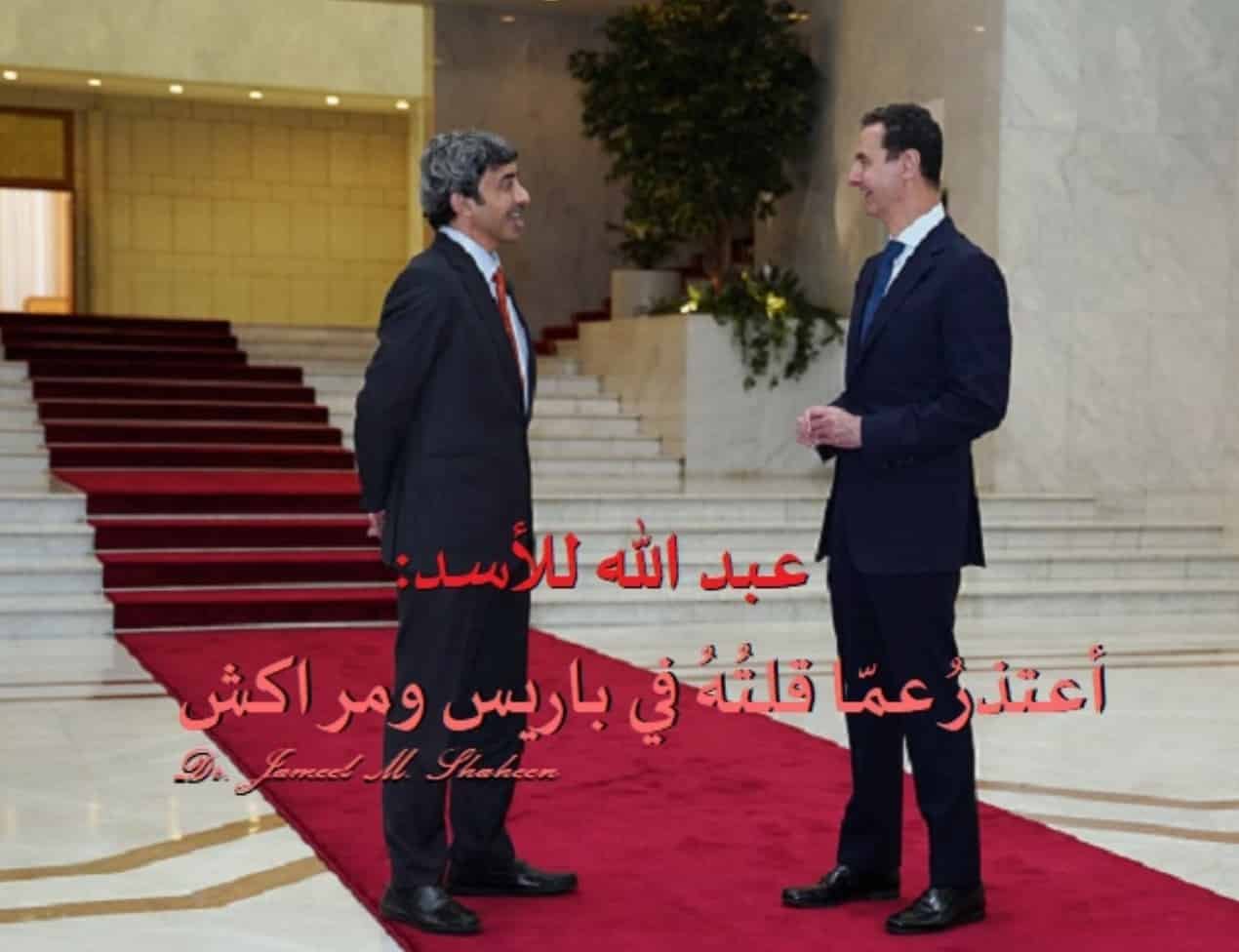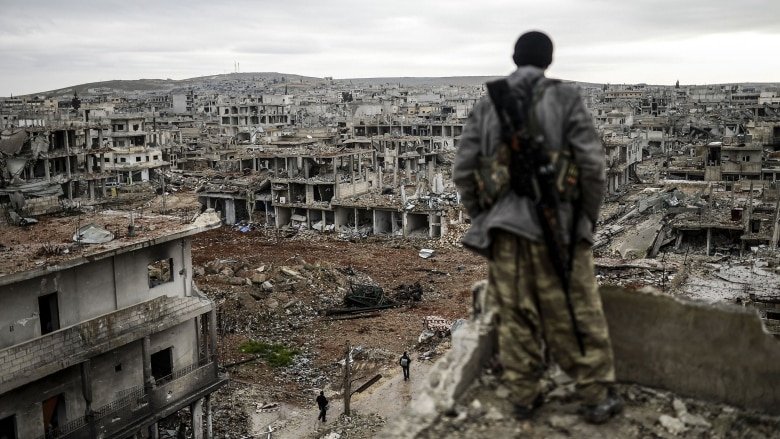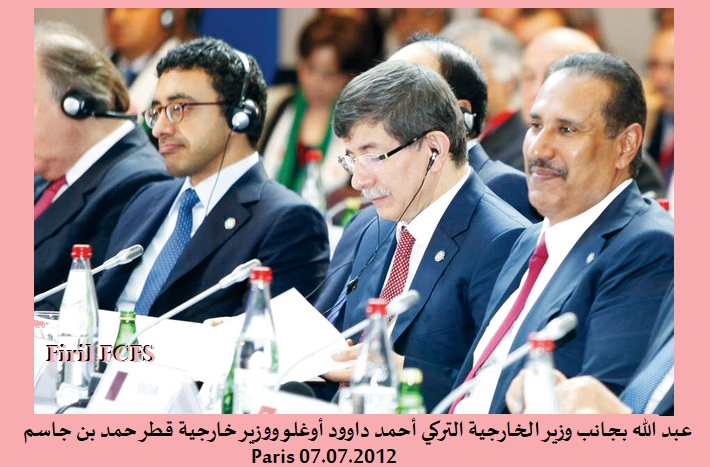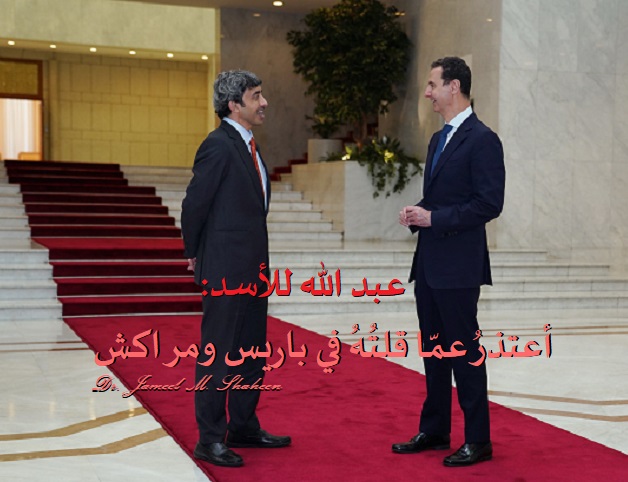
[ Editor’s Note: The outreach moves from Arab League countries have been in motion with Syria for some months now. At first nothing was published until some preliminary understandings were reached so as not to become another failed Mideast de-escalation effort.
The first big step will be to bring Syrian back into the Arab League, but the trick will be what will be wanted in return. That list might include the removal of Turkish and Iranian forces. There was no mention of the Russians, which the US would certainly want out.
I can’t see Erdogan making a voluntary withdrawal as he is already under growing political pressure at home with his bad economy, endless foreign adventures, and rumors of declining health, a la Trump.
So far Erdogan’s threatened offensive in Idlib and in the NE Syrian Kurdish regions seems to be stalled. The usual sparing is going on with shellings and drone attacks.
But to sweeten the pot, the UAE offered to build a photovoltaic power plant outside of Damascus. These plants take years to build, so at this point everything is all talk, which can easily go up in smoke at any moment.
There has not been a peep out of the US on any of this, but we see Iran definitely open to deescalating tensions in the Gulf. For now, we will have to monitor the moves until we know which ones were real and which were diversions… Jim W. Dean ]

First published November 11, 2021
The United Arab Emirates severed relations with Syria in February 2012, specifically at the request of the United States. In March 2018, it reopened its embassy in Damascus and led a campaign to return Syria to the League of Arab States. This campaign ran into opposition from some Arab and Western countries.
With Joe Biden assuming the seat of government in Washington, he began to ease the burden on his country, handing over several files to other countries to devote themselves to his war against China, and his administration’s awareness of the political failure of the United States to resolve several files, including Afghanistan and currently its failure in the separatist project in the “Syrian island,” and this is what We’ll talk about it later.
Here, some Arab countries began to move towards Damascus, including Jordan, whose King Abd al-Thani called the Syrian president for the first time since the start of the war on Syria, and Iraq, and to some extent, “shy and tied” Egypt, moved.
Sheikh Abdullah bin Zayed, the UAE Minister of Foreign Affairs, who visited Damascus yesterday, Tuesday 09.11.2021, is the same one who headed his country’s delegation to the “Friends” conferences of the Syrian people in Paris, July 06, 2012 and Marrakesh, Morocco, December 2012.
He literally said before the delegations and leaders of 100 countries that participated At the conferences, led by the United States, the European Union and the Arab countries:
“The international community must change its strategy regarding what is happening in Syria in light of the Syrian regime continuing its crimes against the Syrian people… How many Syrian brothers must die in order to change our strategy if what is happening in Syria?”
There is the worst, as he called for military intervention under Chapter VII in Syria. Some have called for more sanctions, but will the sanctions change the behavior of the Syrian regime and put an end to its crimes and massacres against the Syrian people? When will we stop watching and talking only?
In the final statement, the UAE, along with Turkey, Qatar, the United States and dozens of other countries called for the UN Security Council to urgently issue a binding resolution under Chapter VII, that is, the use of “military force” to ensure a political transition in Syria.
Sheikh Abdul bin Zayed is the same one who was in Damascus yesterday shaking hands with Syrian President Bashar al-Assad, so what happened?
In the photo, Sheikh Abdullah is sitting next to Turkish Foreign Minister Ahmet Davutoglu and Qatar’s Foreign Minister Hamad bin Jassim.

In the second picture, the body language says: “I apologize for what I said earlier at the Paris and Marrakesh conference.”

Although the UAE’s position on the war in Syria, politically, was not better than the rest of the Arab countries, with the exception of only some of them such as Iraq, Algeria and Lebanon. But impartially, Abu Dhabi’s support for terrorists, militarily and financially, was the lowest among the Gulf states compared to Saudi Arabia, Qatar and Kuwait.
ATTENTION READERS
We See The World From All Sides and Want YOU To Be Fully InformedIn fact, intentional disinformation is a disgraceful scourge in media today. So to assuage any possible errant incorrect information posted herein, we strongly encourage you to seek corroboration from other non-VT sources before forming an educated opinion.
About VT - Policies & Disclosures - Comment Policy



